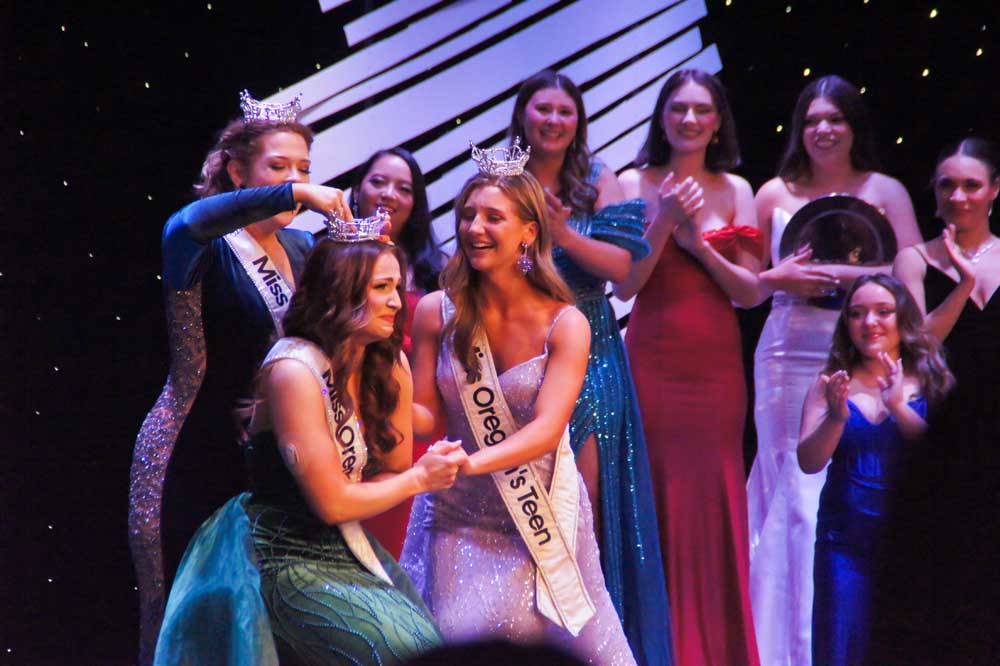Local Documentary Film ‘Glena’ Recognized By Slamdance
Published 4:00 pm Saturday, February 1, 2014

- <p>Team Glena at the Slamdance Festival in Park City, Utah: From left to right: Producer Josh Leake, star Glena Avila, Executive Producer Ashley Scherman and Director Allan Luebke</p>
![]()
At 5 feet 4 inches tall and 115 pounds, Glena Avila is not someone you’d want to stare down in a dark alley. Those that know her well refer to her as “Heartless,” a name that she picked up along her path to becoming a professional mixed martial artist. After training in Muay Thai (a form of kickboxing) and Brazilian jiu-jitsu, and posting an impressive 6-0 record in the ring as an amateur, she has since accomplished that goal.
The real feat, however, is that Avila started her mixed martial arts career later than most, achieving professional status at the age of 35 while raising two children and holding down a full-time job.
And now, along with everything else she has on her plate, Avila is the subject of a new documentary, Glena, that recently premiered at the Slamdance Film Festival in Park City, Utah. Directed by Portlander Allan Luebke, the film chronicles Avila’s life and the challenges of combining her role as a mother and working professional with her mixed martial arts career.
Avila was raised in a household with all brothers and says that the siblings were all very rough and tumble with each other. A fairly trouble-filled high school experience added to the chip Avila says she carried on her shoulder. She eventually married and had children, though after she and her husband divorced, she found herself searching for something more.
“It’s kind of hard to explain, but one day I was on YouTube and I saw these girls fighting and I just thought it was really interesting. I had watched UFC [Ultimate Fighting Championship] and stuff like that before, but I never saw women compete,” Avila says.
Mixed martial arts is a fierce style of fighting that has been popularized by the UFC league. Known informally as MMA, what makes the sport unique is that competitors have the option of using a variety of different fighting styles, rather than being restricted to one, such as in boxing. The result is a particularly brutal sport that until recently has been dominated by men.
In an interesting twist, almost exactly a year ago (during production of the documentary), the UFC hosted the first official UFC championship fight featuring female MMA fighters.
In MMA, the fights take place in a cage, not a traditional boxing ring.
“A lot of people call it cage fighting,” says Avila. “The cage isn’t to make it more graphic; it’s actually for our own safety. A lot of times if you see fights happening in a ring, people fly out or things can happen, so it’s more of a safety thing than it is for the crowd’s pleasure or the brutality of the sport.”
Still, the sport can be brutal. Though fighters wear gloves during bouts, the gloves are much less substantive than a traditional boxing glove, so the tendency for bloodshed is common.
So why would a mother of two, at the age of 35, choose to involve herself in such an activity? Seeking an answer to this question initially motivated Luebke to produce a documentary about Avila.
“This is an inspiring story about a woman who has worked so hard to get everything that she has in her life,” Luebke says. “She owns her own home, she has this great job helping veterans, she has two kids that she’s raising by herself. She’s really created this life for herself that we all dream of — the American dream. And then one day she finds that there is this other thing that she wants to do, she falls in love with fighting, but she doesn’t want to give up what she already has.”
Luebke and his team worked tirelessly to produce the best film they could, many of them working for little to no money or at steep discounts to their normal professional rates.
“Everyone who worked on this movie is actually from Portland: the music composer is from Portland, I’m from Portland, all the producers are from Portland, Glena works and trains in Portland. So it’s really a local story [and] an independent film in the purest sense of the word,” says Luebke. “We spent three years making the movie. We spent about a year shooting it and about two years editing it. We were able to get this movie to where it got because of all the committed people who worked on it.”
And all of their work paid off when Luebke got a call from Slamdance programmers informing him Glena had been accepted into their film festival.
The Slamdance Film Festival is known for being one of the most selective in the nation. Formed in 1995 by filmmakers Dan Mirvish, Jon Fitzgerald, Shane Kuhn, Peter Baxter and Paul Rachman, its creation was a response to what some people considered Hollywood’s incursion into the independent ranks of the Sundance Film Festival held in the same city, during the same week.
“1995 was an interesting year, in general, in the history of independent film,” says Mirvish in a video
Since Luekbe’s return from Park City, he has had nothing but good things to say about his experience and the reception that Glena received there.
“It was amazing! It was basically summer camp for filmmakers. Six days packed with coffee, happy hour, screenings, panels and parties … and all right on Main Street where the circus that is Sundance was happening,” he says.
As for the premiere itself, Luebke says that it couldn’t have gone better.
“We played to a packed screening room with Glena Avila in attendance. The crowd erupted into cheering multiple times during the movie. I’d seen grand ovations following a movie’s credits before, but never during. The Slamdance programmers said they’d never seen anything like it.
Luebke and his team are currently in the process of negotiating distribution deals for the film, which he hopes will give more people the chance to learn about Glena’s story.
You can learn more about Glena Avila and the documentary on State of Wonder.
This story originally appeared on Oregon Public Broadcasting.






